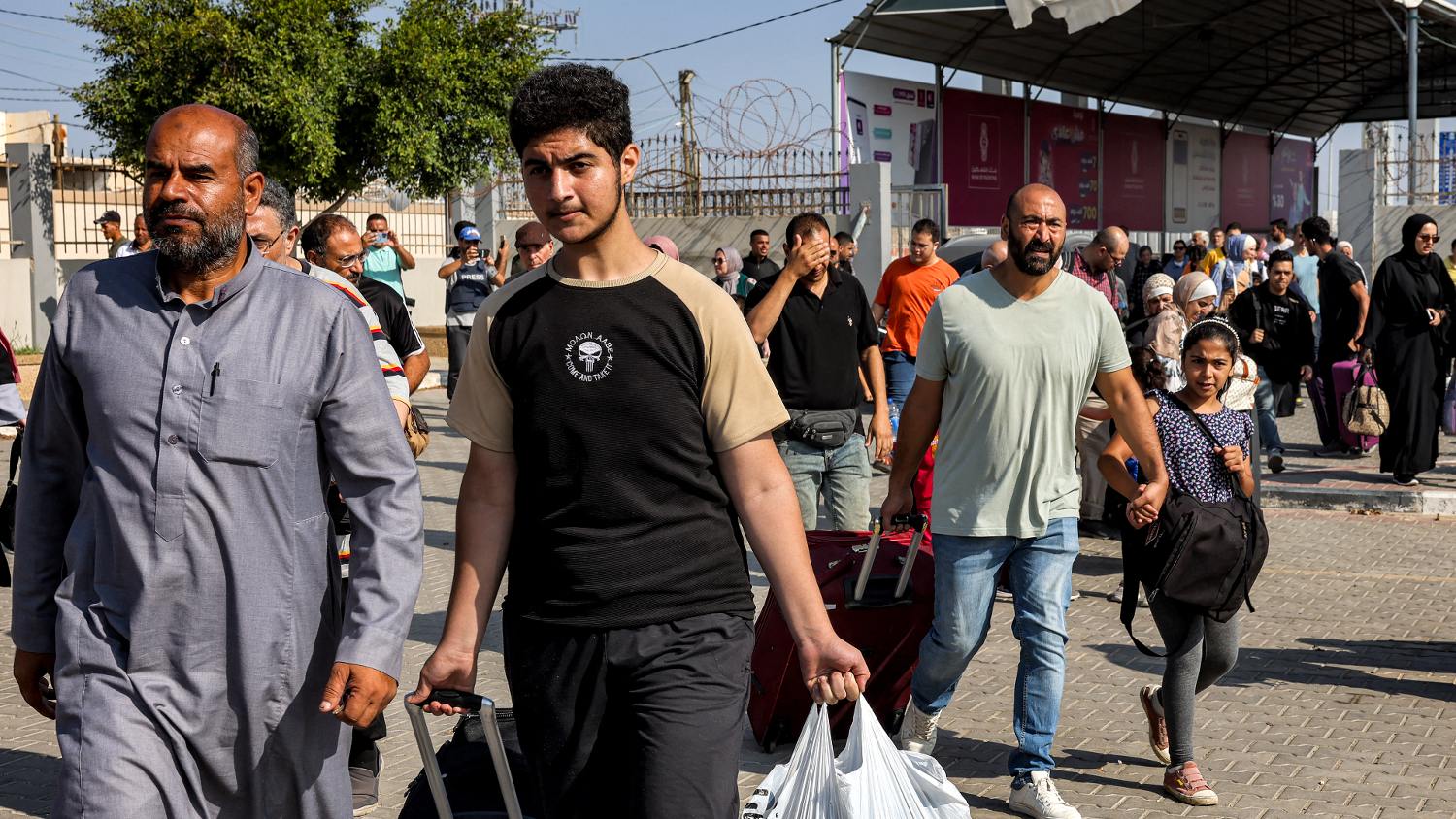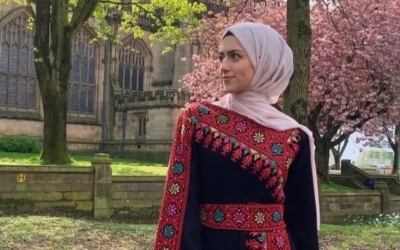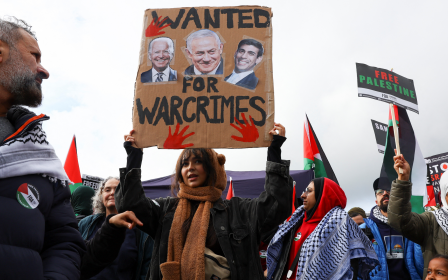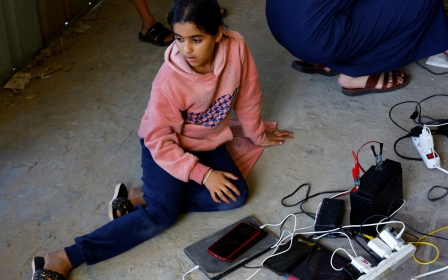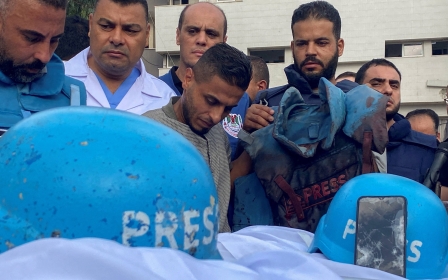Israel-Palestine war: Palestinian Americans from Gaza relive trauma while fearing for families back home
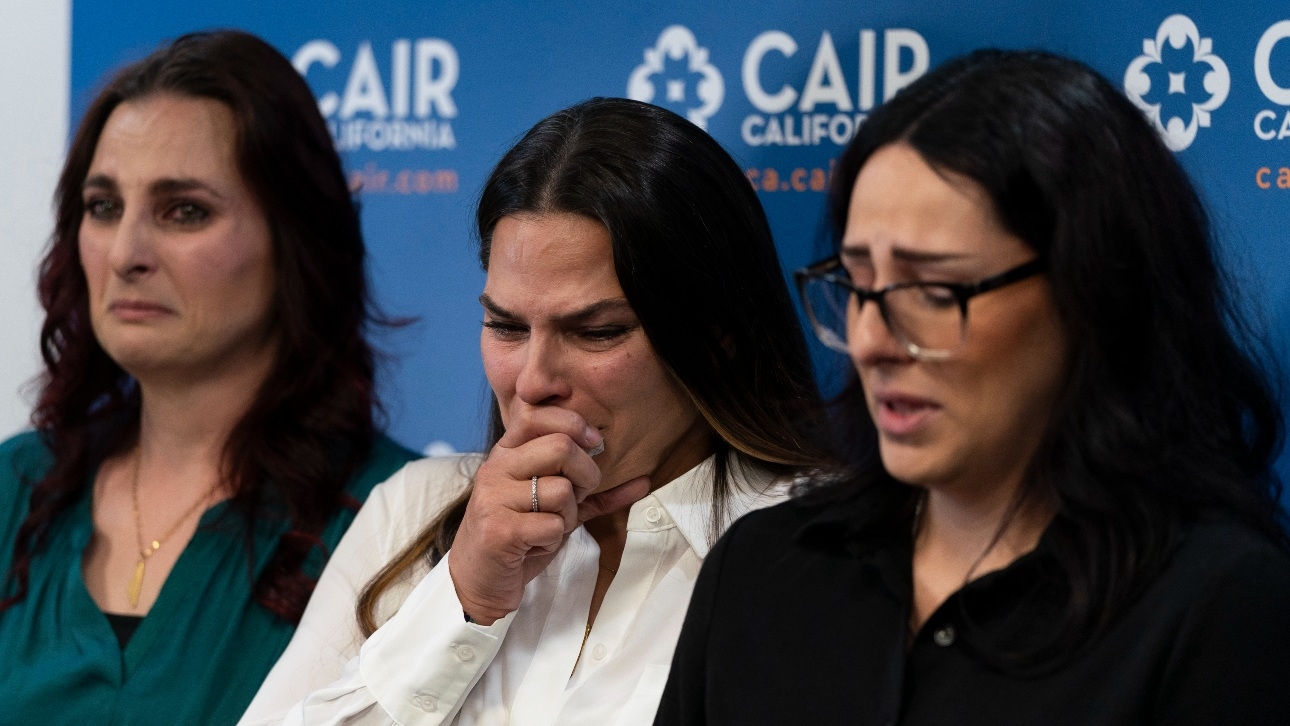
Najla Khass and her siblings have spent the past several decades trying to mentally and physically heal from the time they spent growing up in the Gaza Strip.
But for her and the many other Palestinian Americans from the besieged enclave, the past several weeks have forced them to navigate a whirlwind of emotions - from despair to unlocked trauma, to the guilt they feel from being in the US while close family members in the Strip face nonstop aerial bombardment.
"They don't have water. They don't have food. They don't have - it's a nightmare. It's a legit nightmare and they're either going to end up dead or keep living that nightmare," Khass said.
"How is it okay for Palestinian people to go through this and come out of it normal?"
The feeling they are experiencing is similar to Survivor's Guilt, a mental condition when one feels wrong or guilty for surviving something tragic or traumatic when others did not.
Nearly every Palestinian in the US has a story of displacement. And of those from Gaza, many also have traumatic stories of war.
Khass, who now lives with her husband and children in New York City, grew up in Gaza's Shejaiya during the 1980s. She witnessed the beginnings of the First Intifada, which began in the Jabalia refugee camp in northern Gaza. The camp, where around 116,00 people live, was repeatedly bombed this week, killing an estimated 100 people and leading to accusations of Israeli war crimes.
The First Intifada saw young Palestinians across Gaza and the West Bank protest against the Israeli occupation of Palestine. They were met with an Israeli crackdown that killed more than 1,000 Palestinians.
"My children are like 'Mom, you're reliving your stories again'. They've heard these stories many years ago. They've heard it from their father. They've heard it from me," Khass told MEE.
"We're watching them talk about the smell of the gas on TV, but we were telling our children how it felt and how it was suffocating us at that given moment."
When PTSD is a privilege
For Besan Abu Radwan, growing up in Gaza in the 1990s meant having to deal with a military occupation everywhere she went.
“It's almost a privilege to suffer from PTSD (Post-Traumatic Stress Disorder) because I'm out of the thick of it," said Abu Radwan, who is from Gaza but now lives in Washington DC.
"I have spent a lot of time forgetting the sound of warplanes, forgetting the sound of bombs, forgetting how it feels to have tear gas in your eyes or feel like you're suffocating in your own home, or forget the raids that happen in the middle of the night from Israeli soldiers because when I was little, Israel was still occupying Gaza."
'I feel like I'm back in Gaza'
- Besan Abu Radwan
She said that after coming to the US, she learned to cope with her trauma, and soon she felt at home in America. Though there have been several wars in Gaza since she left, she was able to gain a certain sense of normalcy in her life.
“Ninety-nine percent of the time before this war happened, it was very easy to be an American citizen. I like to watch football, the NFL, and I like to have Thanksgiving dinner.”
However, the war that began on 7 October was nothing like any person from Gaza had seen before. Palestinian armed groups, led by Hamas, launched a surprise attack on Israel, entering the south and defeating several Israeli military units and also killing more than 1,400 Israelis. At least 220 Israelis were taken as hostages.
The attack, which killed hundreds of Israeli citizens, according to the Israeli government, led to a relentless Israeli bombing campaign in Gaza, coupled with a siege on the already blockaded territory. So far, Israeli air strikes have killed more than 8,800 Palestinians, including more than 3,600 children and 2,200 women, according to the Palestinian Ministry of Health.
Experts have warned that Israel's actions, including a potential displacement of Palestinians in Gaza, will lead to genocide and a second Nakba - a reference to the ethnic cleansing and forced displacement of hundreds of thousands of Palestinians during the creation of Israel in 1948.
The fighting in Gaza has also led Israel to launch near-daily military raids in the occupied West Bank, which is governed by the Palestinian Authority and not Hamas. Dozens have been arrested and more than 100 Palestinians have been killed.
For Abu Radwan, it's like being in the Strip again: "In this most recent time, I feel like I'm back in Gaza."
“Now, every time I hear an airplane, every time I hear a helicopter, my brain is back there.”
For different generations of Palestinians from Gaza, the trauma from war can be slightly different. For those who lived there in the 80s and 90s, like Khass and Abu Radwan, it was a daily reality of occupation and dealing with Israeli soldiers.
Nisreen Rajab lived in Gaza during the 2000s. She too has witnessed Israeli air strikes and bombs and the fraught living conditions imposed on the Strip due to the Israeli blockade that began in 2005 and excludes Palestinians from having access to basic needs, goods and vital services.
“Gaza was always a rough place to live in. Not only because of the bombing and the wars, but also because of the poverty and lack of jobs, lack of opportunities,” she said.
Gaza is now often referred to as an open-air prison that has a perennial shortage of clean water, electricity, and medical supplies.
"For the past 10 years, I've been having nightmares about Gaza. There is a recurring nightmare that I have until this day," Rajab told MEE.
"Ten years and this nightmare never left, dreaming that I'm in Gaza, and that I'm crying and sobbing and I’m asking why am I here? What am I doing here? I want to leave Gaza, but the borders are closed and I can’t get out."
Is all of my family dead?
While they make efforts to go on with their lives, their minds are centred around daily attempts to get in touch with their families back in Gaza. With the internet in short supply and high demand there, sometimes those messages only come every few days.
“I am constantly wondering about my family - are they alive or are they dead? And it's not just, is one of them alive or is one of them dead? It's, have all of them been killed?” Abu Radwan said.
Each side of her family is sheltering in one house, meaning that just one Israeli bomb could kill everyone there.
Khass has already lost several family members in an Israeli air strike.
"We lost family members. So right now we're just in a whirl of emotions. And we're grateful that we have our faith and whatever is written is written," said Khass.
The United States announced that Americans in Gaza would leave the Strip on Wednesday, several weeks after war broke out and weeks after the US government announced the same news for Israeli citizens to leave.
Internal emails in the Biden administration reported by HuffPost showed that Americans in Gaza were told to "use their own influence to improve the situation".
Rajab is constantly worried about her family back home in Gaza. While she is grateful that she was able to leave Gaza, a place she called a "living hell", she cannot stop thinking about her family and whether or not they are safe.
"I've been ill ever since the war on Gaza started, thinking about my family day and night," she said.
"I'm safe here, working, eating, and living while they can't even find clean water or a safe shelter!"
Middle East Eye propose une couverture et une analyse indépendantes et incomparables du Moyen-Orient, de l’Afrique du Nord et d’autres régions du monde. Pour en savoir plus sur la reprise de ce contenu et les frais qui s’appliquent, veuillez remplir ce formulaire [en anglais]. Pour en savoir plus sur MEE, cliquez ici [en anglais].


